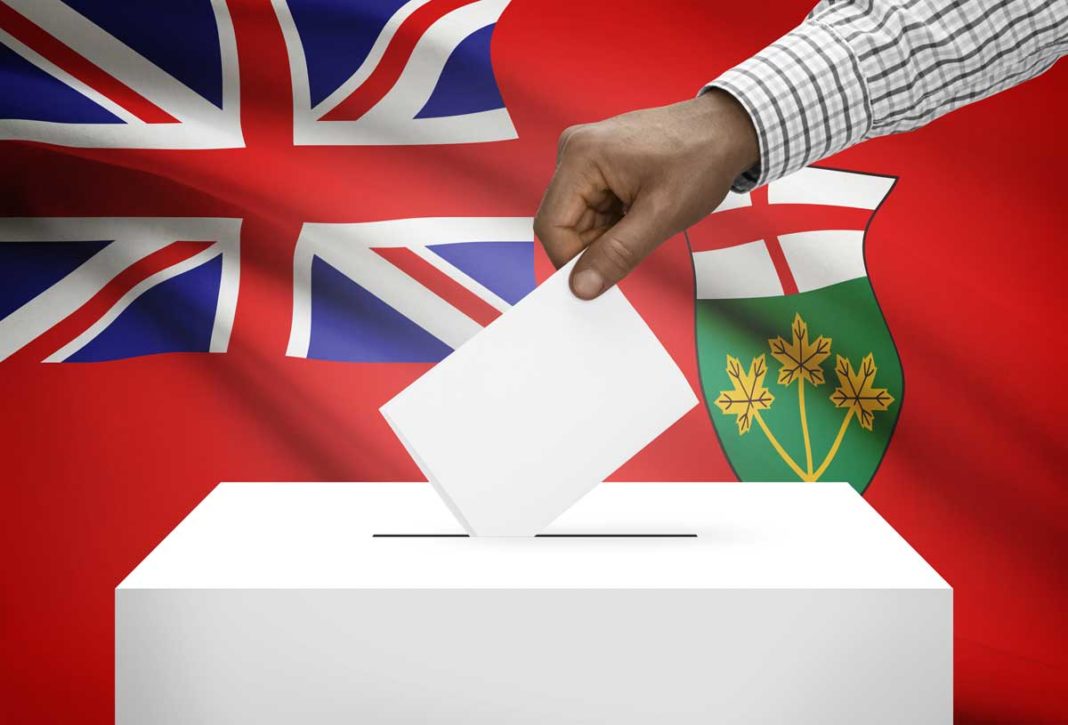3 of these from Algoma-Manitoulin
ALGOMA-MANITOULIN—Amid escalating environmental challenges and the ever-pressing threat of climate change, a dedicated coalition of local environmental and conservation groups has stepped forward to ensure that the voices of their communities are heard. This coalition—including the Sault Climate Hub, Sault Naturalists, The Kensington Conservancy and the Lake Superior Watershed Conservancy—crafted an in-depth online survey aimed at revealing where provincial election candidates in Algoma-Manitoulin and Sault Ste. Marie stands on key environmental issues.
The survey was designed as a critical tool to empower local voters, offering a transparent glimpse into the candidates’ positions on climate change mitigation, air pollution, water protection, and sustainable practices. By inviting each candidate to detail their environmental strategies through a series of thought-provoking questions, the initiative sought to bridge the gap between public concern and political accountability at a time when urgent ecological action is needed.
The survey was emailed to each candidate on February 13, with responses due by February 20. The results were to be publicly released by February 23 through social media, websites and local news outlets.
However, the response has been unexpectedly muted. Only four out of 12 candidates engaged with the survey, which highlights a worrying disconnect between the pressing environmental needs of the community and the level of commitment shown by those vying for political office. This disappointing turnout underscores the challenges of obtaining candid insights into the candidates’ environmental agendas and signals a broader need for accountability in addressing the ecological crises that directly impact local livelihoods.
In these critical times, when communities demand clear, actionable commitments to safeguard our natural resources and combat climate change, such questionnaires are more than just surveys—they are essential instruments for fostering dialogue, driving transparency, and guiding the policies that will shape our shared future.
Mark, a passionate volunteer with the Sault Climate Hub, explained that the survey was designed to shed light on where each candidate and their party stand on vital provincial environmental issues—and those challenges unique to our region. Each candidate could articulate their platform through eight detailed questions, including how they plan to combat climate change if elected.
“While the overall response to the survey was disappointing,” Mark concedes, “we truly appreciate the candidates who took the time to answer every question thoughtfully.”
He added, “We were pleased that candidates who completed the survey took it seriously and gave some well-thought-out answers. Regarding the candidates that responded, it is good for the public to see information on their personal backgrounds and experiences with the environment and their party’s positions on these issues.”
The Survey Results
In Sault Ste. Marie, NDP candidate Lisa Vezeau-Allen stressed her commitment to environmental stewardship. Reflecting on her hands-on experience, she said, “In terms of climate, waste reduction and the environment, I strive to be aware and knowledgeable regarding these critical issues. In my volunteer capacity in food security, we strive for zero food waste, and I have worked with Clean North in composting and eliminating food waste.” As a city councillor, she underscored her proactive approach: “I supported the elimination of single-use plastic bags.” She further highlighted the urgency of robust enforcement by stating, “We need more inspectors and higher fines for non-compliance.”
Meanwhile, Independent candidate Mike Mantha from Algoma-Manitoulin outlined his longstanding advocacy for environmental protection. “Yes, I am a progressive in the environment. During my time as MPP, I have stood on the side of protecting the environment in Algoma-Manitoulin,” he explained. He recalled his determined opposition to policies that undermine environmental safeguards: “I fought against this government’s legislation to undermine the work of Conservation Authorities around the province. I voted against the government’s bills which would gut wetland protections, remove land from the Greenbelt for development, exempt the Bradford Bypass and Highway 413 from environmental assessments, and used my weekly column to raise awareness of the Ford government’s erosion of the Environmental Bill of Rights.”
Addressing local accountability, he added, “As soon as it came to my office’s attention that Algoma Steel had applied for the exemption outlined above, I set up a meeting with the MECP to get to the bottom of what was happening.”
In Algoma-Manitoulin, NDP candidate David Timeriski also conveyed a deep personal connection to the land, emphasizing the importance of safeguarding it for future generations.
“My family and I have close connections with the land. We enjoy being outdoors, with the fresh air and open spaces. At the same time, I am very aware of the large footprint we as humans are imprinting on our environment and the need to reduce that significantly to have the next generations enjoy the experiences my family takes such pleasure in. I take my responsibilities to preserve threatened habitat seriously when using trails and make every effort to reduce my household footprint.” Drawing on his experience as a volunteer firefighter, Mr. Timeriski noted, “As a volunteer firefighter, I have seen the devastation and loss caused by wildfires—often due to human activity. We must all do our part to protect and preserve the world around us.” He declared, “If elected, I look forward to working with First Nations communities, municipalities and businesses to ensure we all can do our part to contribute to solutions to climate change.”
Liberal candidate Reg Niganobe from Algoma-Manitoulin also affirmed his environmental credentials. He began, “I consider myself an environmental candidate.”
Recounting grassroots actions that have shaped his approach, he recalled, “At the direction and input of my Elders, we rallied and protested against glyphosate spraying in Ontario during forestry operations.” He further emphasized his commitment to impactful advocacy on a larger stage, noting, “We successfully submitted a written and spoken submission on the floor of the United Nations in the fight against Line 5-an oil pipeline which travels under the Straights of Mackinaw and threatens the entirety of the Great Lakes.”
These statements underscore a clear call for accountability and proactive environmental stewardship. As each candidate outlines their past accomplishments and future commitments, the survey serves as a critical tool for voters seeking transparent answers on how local leaders plan to confront the region’s pressing environmental challenges.
Any candidates who haven’t responded or would like it sent to them again can email saultclimatehub@gmail.com. We will continue to update the responses online as we receive them up until the provincial election on February 27.






